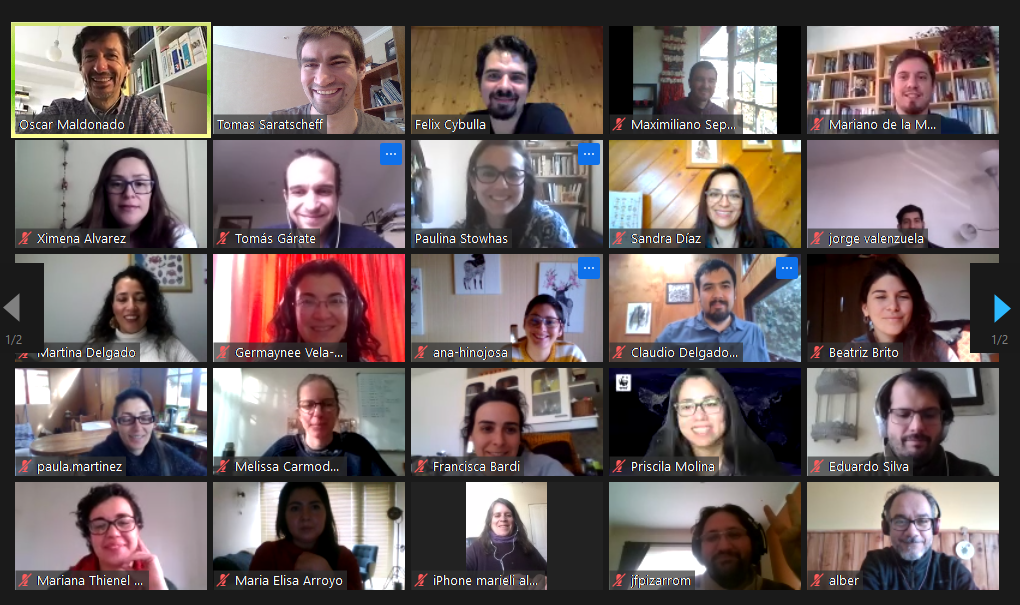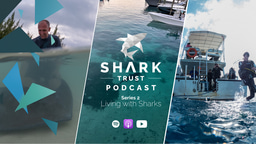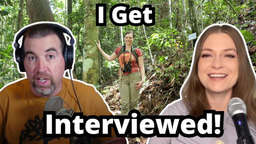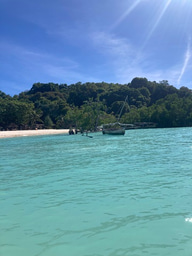Advanced Online Conservation Standards Training for Practitioners in Chile

Conservation coaches Felix Cybulla from Germany and Oscar Maldonado from Guatemala were commissioned by the Ministry of the Environment of Chile to organise and conduct a high-level Conservation Standards training for 24 Chilean practitioners. As all participants have had different exposures to the Conservation Standards (CS) methodology, this course aimed to strengthening their capacities and practice, particularly in steps that often seem challenging and require a set of tricks and tips. The training programme payed particular attention to CS steps 3 to 5, that go beyond conceptualising and planning a conservation project, and focus on implementing, adapting, learning and closing the conservation project cycle loop.
Interest in the training was overwhelming, having at the beginning over 100 applicants. The selected participants represent 12 organizations, including government institutions, national and international NGOs, and independent consultants. Nine of the virtual modules cover the steps of the Conservation Standards; the remaining three dive deeper into climate change and the human dimension of natural resource management, Chile’s specific challenges, and Miradi.
As usual, preparation was key for this training. Furthermore, since it was conducted virtually, a special attention had to be payed to the session agendas and dynamics, the structure of each weekly module, and to the overall distribution of the thematic content along the 12-week duration of this event. Main sessions included a rich feedback and discussion on the group homework, followed CS steps presentations that also included methodological suggestions, remarks on common errors and ways to avoid them, and again rich discussion based on the attendees’ experience. A second weekly session (optional) meant to help participants to solve issues they had found in their homework. Together, virtual sessions and group homework represented an investment of 8 hours for everyone.
The training provided a number of lessons learned for both participants and trainers. Methodologically, it showed us how important is to work on a longer programme with shorter sessions, which allows to keep participant’s attention during the sessions, combine sessions with hands-on work, to pause and reflect, and to have opportunities to address issues found in the training exercises. Giving opportunities to work in groups between the sessions also allowed attendees to share knowledge and expertise, to find together challenges and solutions, as well as to identify common concerns. Individual feedback and discussion on their work as a starting point of every session
Having two trainers/facilitators working together is strongly recommended as one can focus on the content while the other can focus on technical issues and support to the one who takes the lead at that moment.
Conservation Standards-wise, participants highlighted the importance of strengthening the critical transition between the planning and implementation phases, as well as documenting and sharing decisions and lessons along the conservation project process.
What can we do better? Although the examples provided were illustrative and participants enjoyed learning on them, if we had to do it again, we would also gather and use examples coming from their practice. There is a good pool of interesting local cases on which we can all learn, but we also considered is a good way to encourage the good work. We could also extend the duration of the second session so that we can have more time for discussion on certain topics for which time was rather short.
Finally, we recognised that conservation partitioners are also keen to learn more about how to improve their implementation of adaptive management, the CS steps 3-5. Most of the Conservation Standards trainings are very strong on steps 1 and 2 (“Assess” and “Plan”), somewhat strong on step 3 (“Implement”), but they still are weak on steps 4 and 5 (“Analyse & Adapt” and “Share”). We were happy to emphasise these steps in the last modules of this training.
COVID-19 restrictions permitting, we will hold a one-week, in-person workshop after the 12 modules. We hope some of the practitioners joining us for this training will soon participate in a Coach Training and become active members of CCNet.
The training was hosted by Chile’s Ministry of the Environment (coordinated by Tomás Saratscheff) with financial support of The Pew Charitable Trusts, the DOI-ITAP United States Department of the Interior: International Technical Assistance Program, Proyecto MMA/ONU Medio Ambiente/GEF Humedales Costeros and Proyecto MMA/ FAO/GEF Gestión del Castor. The training is conducted in partnership with the Wildlife Conservation Society-Chile and WWF Chile.
By Oscar Maldonado and Felix Cybulla, Independent Consultants in Conservation Planning and Adaptive Management.




Please sign in or register for FREE
If you are a registered user on WildHub, please sign in
Thank you for sharing this Oscar and including honest reflections.